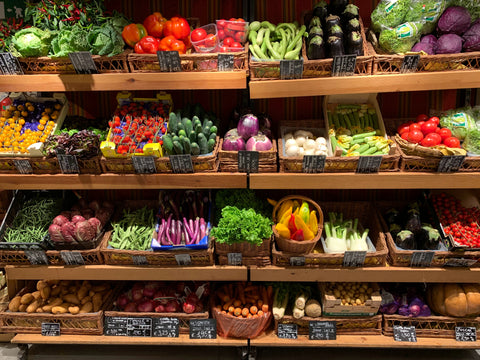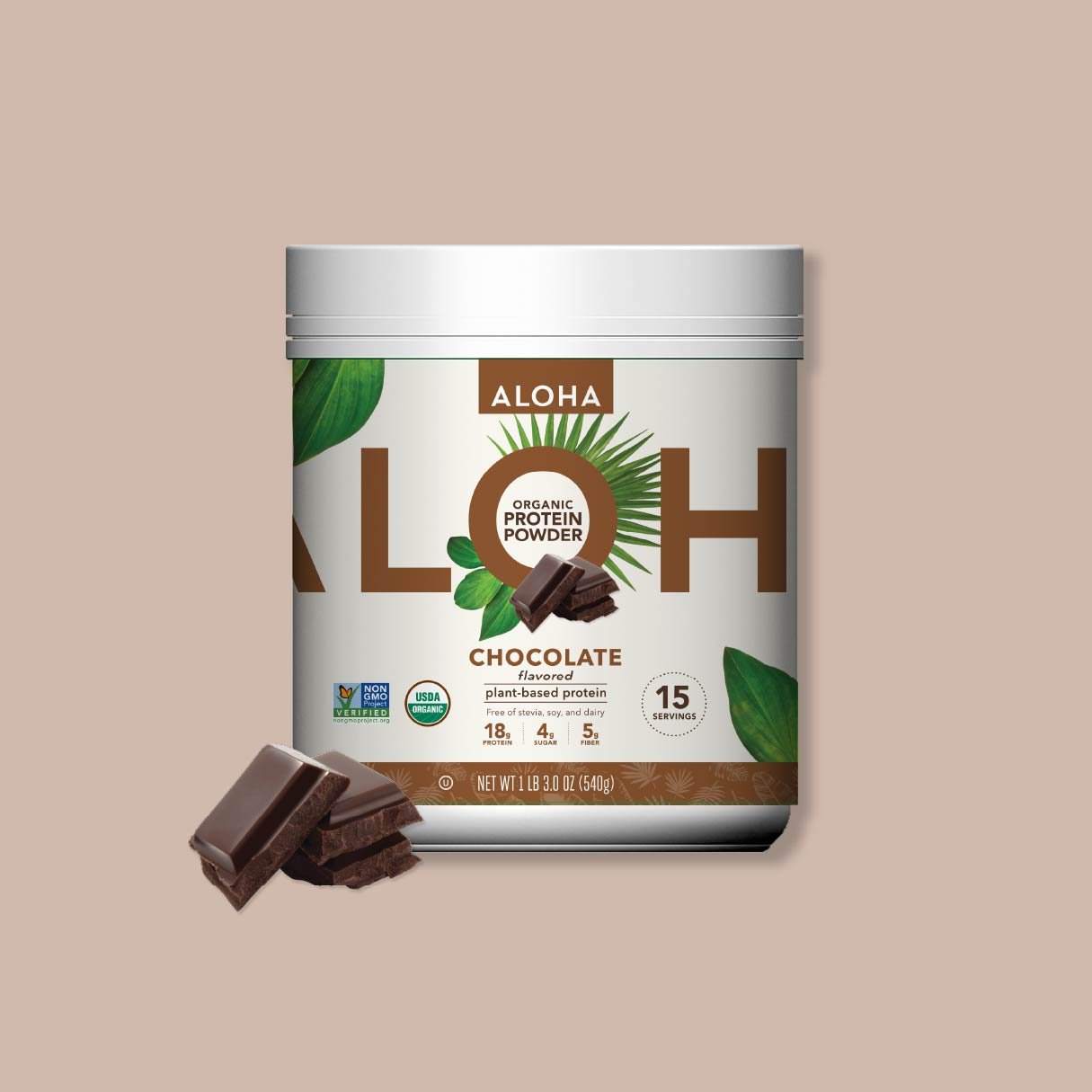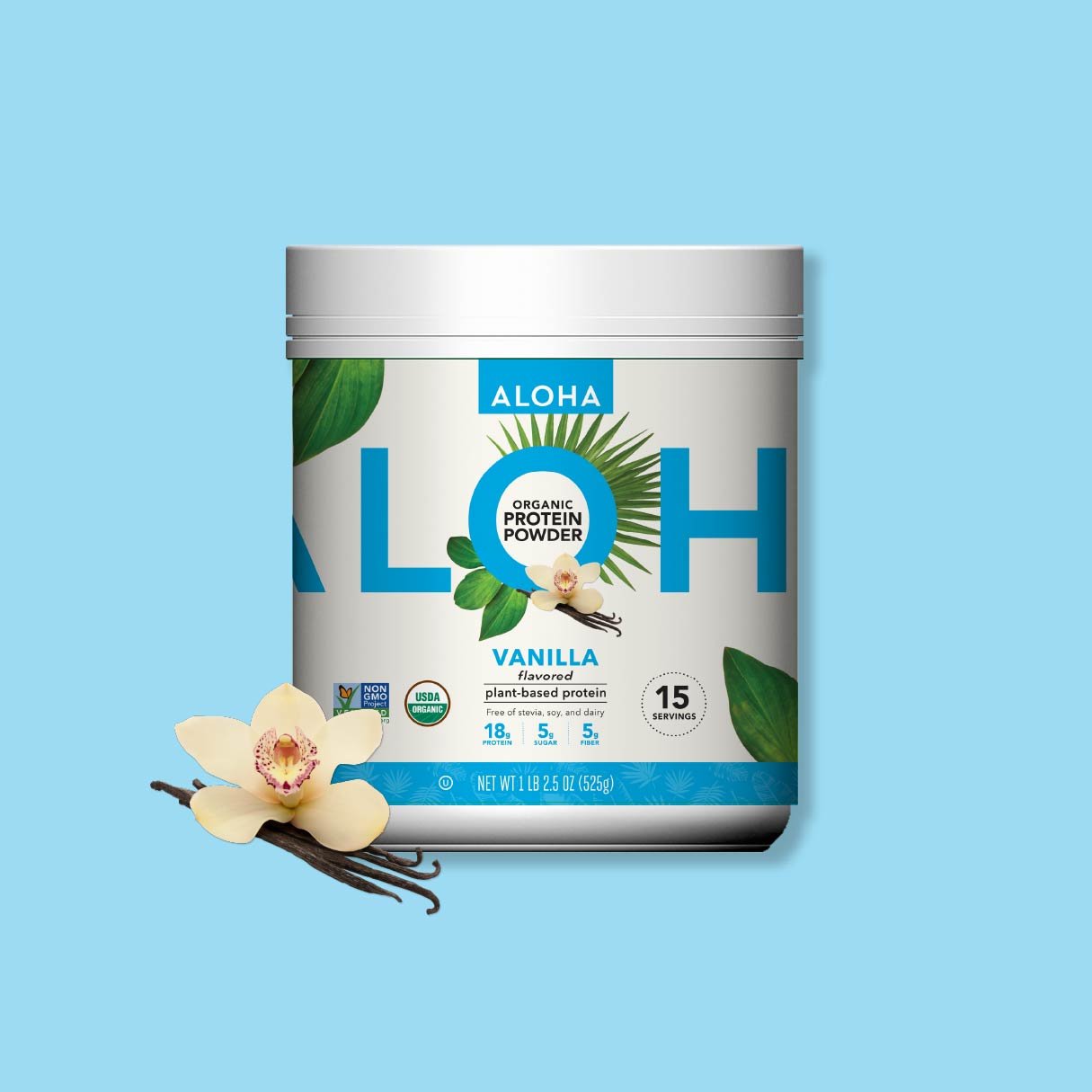Non-Genetically Modified Organism (NON-GMO)
Do you actively seek out non-GMO products when grocery shopping? If so, you're not alone. On the other hand, if you're one of the many wondering, "what is the meaning of NON-GMO?" You're not alone either!
Non-GMO stands for "non-genetically modified organism." Food that is labeled Non-GMO means that the genetic makeup or DNA of the organism is not artificially modified or engineered in a laboratory to create a product with traits that do not occur in nature.

The non-GMO movement has gained popularity in recent years due to concerns about GMOs' potential health and environmental impacts. Since genetically engineered crops have only been in use for a relatively short period of time, starting in 1994, there is limited research on the potential long-term effects on human health.
In this blog post, we're going to dive deeper into the following to answer these burning questions:
-What does GMO mean?
-What is the meaning of non-GMO?
-Does Non-GMO mean it's organic?
-Is ALOHA Non-GMO Project Verified?
-Is Non-GMO important for the environment?
-Are GMO foods harmful to your health?
What Does GMO Mean?
GMOs means genes are inserted from one species into another to create a new trait or characteristic. This is typically done by taking DNA from one organism and inserting it into the DNA of another organism, which creates a new genetic makeup. The resulting organism is called a genetically modified organism, or GMO.
In the context of food and agriculture, GMOs are often used to:
-Manipulate crops that are more resistant to pests, drought, or other environmental factors to make it easier for farmers to grow the crop to prevent food loss
-Manipulate food to have a longer shelf life by delaying the natural process of decay.
The majority of processed foods contain genetically modified organisms:
1. Corn
2. Soy
3. Eggs
4. Meat
5, Seafood
6. Dairy
7. Canola oil
8. Sugar
What's even more shocking is that over 90% of the corn and soy grown in the United States is genetically modified. 95% of animal meat in the United States eat GMO crops.
It's worth noting there are concerns about the safety and potential environmental impact of genetically modified foods, and many people are cautious about adopting these technologies without further research and testing. Additionally, some people believe that traditional methods of farming and food production are more sustainable and should be prioritized over genetically modified technology.
Does Non-GMO Mean It's Organic?
To put it simply: Organic is always non-GMO. If food is USDA organic then it's also non-GMO, even if the non-GMO Project Verified label is missing. However, food can be labeled as non-GMO Project Verified but may not be labeled as USDA organic.
While both certifications address concerns related to genetically modified organisms, USDA Organic addresses a broader set of concerns related to organic farming practices that do not include GMOs, while Non-GMO Project Verified focuses specifically on the presence of GMOs in food. Keep reading to see the comparisons between the two.

What is the Meaning of Non-GMO?
When a product has a Non-GMO Project Verified label it means it has undergone a rigorous third-party verification process that ensures it meets the organization's strict standards for non-GMO ingredients. This includes testing of all ingredients in the product, as well as testing of the facilities where the product is produced. This verification must be updated annually.
- GMO-free: GMO-free means the product must not contain any genetically modified organisms (GMOs) or their derivatives.
- Verification of High-Risk Ingredients: Ingredients that are commonly derived from GMO sources, such as soy, corn, and canola, must be tested to ensure they are non-GMO.
- Non-GMO: Requires that livestock are non-GMO and received a non-GMO or organic feed.
- Traceability and Segregation: The product must be traceable back to the source of the non-GMO ingredients and must be segregated from GMO products throughout the supply chain.
- Ongoing Testing: The product and its ingredients must be regularly tested to ensure ongoing compliance with the Non-GMO Project's standards.
- Transparency: The product must be labeled accurately, including the Non-GMO Project Verified seal, to ensure transparency for consumers.
What is USDA Organic?
The USDA Organic label is a certification program established by the United States Department of Agriculture (USDA) that verifies that food was produced through approved methods that promote ecological balance and conserve biodiversity. This verification must be updated annually as well.
For a product to be labeled USDA Organic, it must meet the following requirements:
- Products must contain 95-100% certified organic ingredients.
- No genetically modified organisms (GMOs) were used in their production.
- No synthetic pesticides, herbicides, fertilizers, synthetic substances, or sewage sludge were used in its production.
- Animals were raised in conditions that allowed them to engage in natural behaviors, such as grazing or foraging, provided 100% organic feed and forage to organic livestock, and were not given antibiotics or growth hormones.
Is ALOHA Non-GMO Project Verified?
ALOHA says hell no to GMOs because they are living organisms that have been genetically engineered in a laboratory to exhibit traits that they do not exhibit under normal conditions. Sounding like a creepy science experiment? Right, it did to us, too. We want to deliver you products with premium quality, natural ingredients.
This simply doesn’t allow room for GMO-produced soy and the associated glyphosate residue (a.k.a. herbicide). Soy is also a common allergen and is often associated with digestive discomfort. Genetically modified soy can be harsh on the environment and harsh on our bodies, making it even more important to us for ALOHA to become Non-GMO Project Verified and USDA Organic. Some of our favorite products are the chocolate and vanilla organic non-GMO protein powders. It only has 20 grams of a nutrient dense plant-based protein blend, only 3 grams of organic coconut sugar, 0 sugar alcohol sweeteners, and is dairy-free and soy-free!

Are GMO Foods Harmful?
1. Toxins
Genetically modified foods can be unstable by potentially making safe foods toxic with the artificially produced genetic material producing unintended proteins or toxins. FDA scientists even warned that genetic modification of foods may lead to "increased levels of known naturally occurring toxicants, the appearance of new, not previously identified toxicants, and increased capability of concentrating toxic substances from the environment, such as pesticides or heavy metals."
Another concern related to GMO foods is the use of chemicals in the form of herbicides and pesticides, which are often used with genetically modified crops to control pests and weeds. The active ingredient in herbicides, glyphosate, may lead to potential health risks such as cancer, reproductive problems, and developmental disorders.
2. Immune System Dysregulation/Allergies
Genetic engineering can transfer allergens to food that people are not normally allergic to, For example, when a gene from Brazil nut was engineered into soybeans, people with nut allergies had allergic reactions to the genetically modified soybeans.
In addition, genetically modified foods may have new protein allergens which have never been a part of the human diet. This can lead to a potential allergic response in consumers.
Did you know that genetically modified soy has up to seven times more of the allergen trypsin inhibitor? Some people react to GMO soy, but not to non-GMO soy. A study in the UK demonstrated that soy allergies and overall immune system dysregulation increased by 50% when GM soy was introduced and consumed.
Ohio allergist Dr. John Boyles stated, “I used to test for soy allergies all the time, but now that soy is genetically engineered, it is so dangerous that I tell people never to eat it.”
He claims that “children are the most likely to be adversely affected by toxins and other dietary problems." Without the proper studies, we don't know how genetically modified food is truly affecting children.

3. Reduced Nutritional Value
You may be wondering "do non-GMO foods have more nutrients?"
The artificial genetic modification of food may result in a decrease in nutrient levels. However, Non-GMO foods may have more nutrients because of the following reasons:
- May use organic farming practices with natural fertilizers
- May contain higher levels of antioxidants, vitamins, and minerals
- May taste fresher from local farms
Non-GMO crops are grown using traditional farming methods that may involve organic farming practices, which can lead to increased nutrient content in the produce. For example, organic farming methods typically involve the use of compost and other natural fertilizers, which can improve soil health and increase the nutrient content of the crops.
Non-GMO foods may contain higher levels of certain vitamins and minerals. A study published in the Journal of Applied Nutrition found that organic, non-GMO foods can have significantly higher levels of vitamins C and E, as well as minerals such as calcium, magnesium, and iron.
They may also have more nutritional value is that they are often fresher. Non-GMO crops are typically grown on smaller, local farms, which means that they don't have to travel as far to reach consumers. This can help ensure that the produce is fresher and more nutrient-dense.

Why Is Non-GMO Important For the Environment?
Non-GMO foods offer several benefits for the environment and farming including the following key advantages:
- Supports reduced pesticide use
- Supports preservation of biodiversity
- Supports improved soil health
- Supports small-scale farmers
One of the most significant benefits of non-GMO foods is the reduction in pesticide use. Pesticides are often used in genetically modified crops to control pests and diseases, but they can also have harmful effects on the environment and human health. By choosing non-GMO foods, consumers can support farmers who use natural pest control methods, such as crop rotation and companion planting.
Non-GMO farming practices can help preserve biodiversity by maintaining a diverse range of plant and animal species. Non-GMO farmers, on the other hand, typically use a range of crops and rotations, which can help maintain soil health and support a more diverse range of species.
Non-GMO farming practices can also improve soil health by reducing the use of synthetic fertilizers and promoting natural soil-building practices. Non-GMO farmers, on the other hand, use natural methods to improve soil health, such as composting, cover cropping, and crop rotation, which can help build organic matter and improve soil fertility.
Non-GMO farming practices can also help support small-scale farmers and local food systems. Non-GMO farmers, on the other hand, often rely on local markets and community-supported agriculture (CSA) programs, which can help support small-scale farmers and provide consumers with fresh, locally produced food.

Will You Say Hell No to GMOs?
The next time someone curiously asks you, "what is the meaning of Non-GMO?" We hope this blog will help you confidently answer this question to keep your friends and family informed on the major impact the foods we eat have on our bodies and the world around us. You can take small steps to eat your way to better health and the way Mother Nature intended with a little help from ALOHA's Non-GMO Project Verified and USDA Organic plant-based protein bars, drinks, and powders.











